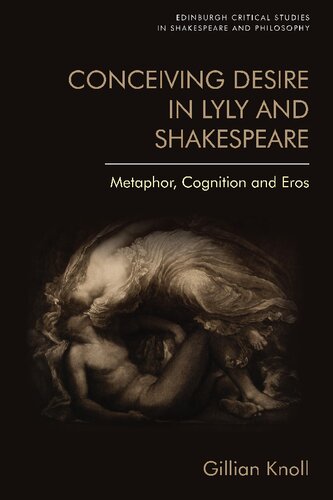

Most ebook files are in PDF format, so you can easily read them using various software such as Foxit Reader or directly on the Google Chrome browser.
Some ebook files are released by publishers in other formats such as .awz, .mobi, .epub, .fb2, etc. You may need to install specific software to read these formats on mobile/PC, such as Calibre.
Please read the tutorial at this link. https://ebooknice.com/page/post?id=faq
We offer FREE conversion to the popular formats you request; however, this may take some time. Therefore, right after payment, please email us, and we will try to provide the service as quickly as possible.
For some exceptional file formats or broken links (if any), please refrain from opening any disputes. Instead, email us first, and we will try to assist within a maximum of 6 hours.
EbookNice Team

Status:
Available4.6
34 reviewsExplores the role of the mind in creating erotic experience on the early modern stage
To ‘conceive’ desire is to acknowledge the generative potential of the erotic imagination, its capacity to impart form and make meaning out of the most elusive experiences. Drawing from cognitive theories about the metaphorical nature of thought, Gillian Knoll traces the contours of three conceptual metaphors – motion, space and creativity – that shape desire in plays by John Lyly and William Shakespeare. Metaphors, she argues, do more than narrate or express eros; they constitute erotic experience for Lyly’s and Shakespeare’s characters.